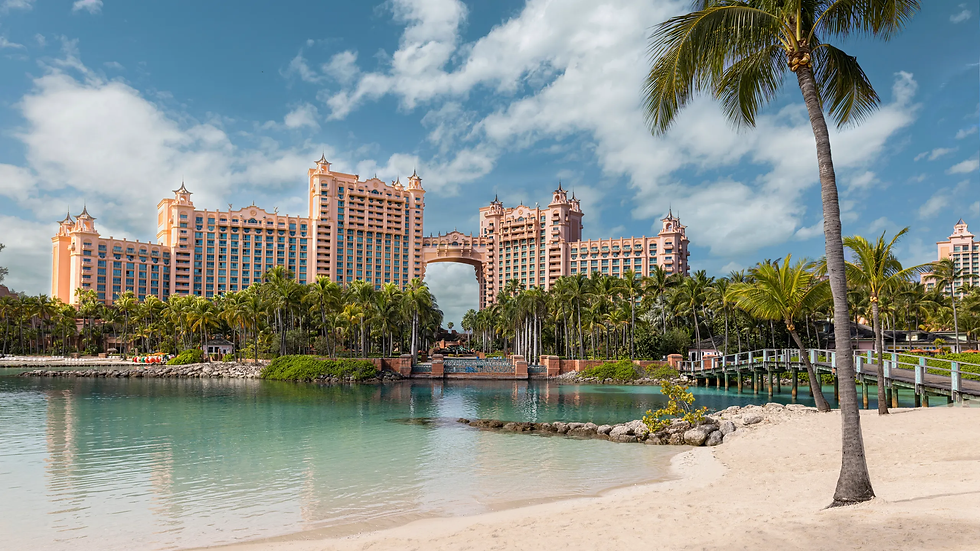Miami: The Strategic Gateway for Caribbean Hospitality Logistics
- Ece Budayıcıoğlu Tavil
- Sep 4, 2025
- 3 min read
When Caribbean hotel owners and purchasing managers evaluate tableware suppliers, one factor often proves decisive: logistics. Beyond product quality and price, the ability to deliver reliably and efficiently to island destinations can make or break a hospitality operation’s dining service.
Miami has emerged as the logistics hub of choice for Caribbean hospitality supply, offering unmatched advantages in proximity, cost efficiency, and reliability. But why does Miami matter so much for tableware procurement, and how can Caribbean hotels leverage this strategic position to optimize their supply chains?

Why Miami Leads in Caribbean Hospitality Supply
Miami Caribbean Hospitality Logistics: The Gateway Effect
Miami’s location at the southeastern tip of Florida creates a natural bridge between North American suppliers and Caribbean destinations. Its port is directly connected to major Caribbean shipping routes, reducing sailing distances and ensuring frequent, consistent departures to island markets.
Purpose-Built Infrastructure
Unlike ports focused primarily on transoceanic trade, Miami’s maritime infrastructure has evolved to support the unique needs of island destinations. This includes specialized handling for mixed cargo—essential for hospitality shipments where tableware, glassware, and other fragile items must be shipped together with care.
Established Trade Networks
Over decades, Miami has built reliable trade connections with Caribbean islands. Regular vessel schedules, experienced freight forwarders, and streamlined customs processes make it easier for hotels to receive consistent service. For hospitality buyers, this translates into reduced risk of delays, competitive freight rates, and faster restocking when guest volume peaks.

Warehouse & Inventory Advantages
Beyond the port itself, Miami’s warehouse network provides critical benefits for hospitality procurement:
Climate-Controlled Storage: Protects sensitive ceramics and glassware from humidity and temperature fluctuations.
Proximity to Port: Inventory can be processed, packed, and shipped within hours of an order.
Flexible Order Sizes: Whether a resort needs a full container for a renovation or smaller shipments for routine restocking, Miami warehouses can handle both efficiently.
This combination of port access and warehouse support ensures Caribbean hotels can maintain their dining standards with minimal disruption.
Reliability During Peak Seasons and Emergencies
For Caribbean hotels, timing is everything. Peak tourist seasons bring high occupancy and increased dining demand, while unexpected events—from equipment failures to weather disruptions—can create urgent supply needs.
Miami’s proximity allows hotels to respond quickly, accessing nearby inventory and benefiting from frequent shipping schedules. This reduces the need for hotels to maintain large, costly safety stocks and provides a dependable alternative to expensive emergency air freight.

Supporting Hotels Through Hurricane Season
Hurricane season presents unique challenges for island hospitality operations. Miami’s logistics advantages help hotels prepare and recover more effectively:
Pre-Storm Preparation: Rapid delivery options allow hotels to stock up closer to the season rather than months in advance.
Post-Storm Recovery: Shorter sailing distances and established trade routes mean faster replacement of damaged tableware after a storm.
Flexible Routing: Multiple shipping options ensure continuity, even when certain routes are temporarily disrupted.

A Growth Hub for Caribbean Hospitality
Caribbean tourism continues to expand, with new resorts and renovations driving demand for high-quality tableware. Miami is uniquely positioned to support this growth thanks to ongoing port investments, enhanced cargo handling systems, and established regional trade connections.
For Caribbean hotels, working with Miami-based suppliers means more than just faster shipping—it’s a complete logistics solution that enhances service reliability, reduces costs, and protects the guest experience.
Partner with The Tabletop Company
The Tabletop Company leverages Miami’s logistics advantages to provide Caribbean hotels with premium porcelain, stoneware, vitrified ceramics, and glass tableware—backed by responsive service and dependable delivery.
Whether preparing for peak season, recovering from unexpected challenges, or planning for long-term growth, our Miami-based operations ensure your dining presentation is never compromised.
📩 E-mail: contact@tabletopcompany.co💬 WhatsApp: +1 (407) 635 8898




Comments